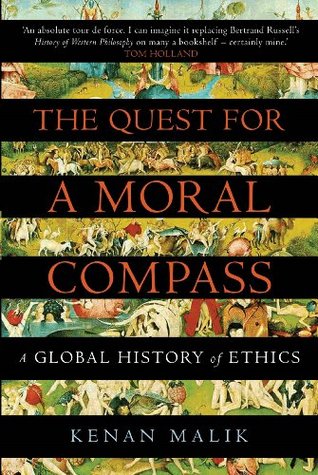More on this book
Community
Kindle Notes & Highlights
by
Kenan Malik
Started reading
January 11, 2017
‘Never in reply to the question, to what country you belong, say that you are an Athenian or a Corinthian,’ Epictetus wrote, ‘but that you are a citizen of the world.
‘With the last words of this sentence’, Augustine recalls, ‘it was as if a light of relief from all anxiety flooded into my heart. All the shadows of doubt were dispelled.’
Once Adam had taken that first bite, humanity was lost.
The success of religious morality derives from its ability to cut its beliefs according to social needs while at the same time insisting that such beliefs are sacred because they are God-given.
It was not so much an explanation of immoral suffering as a promissory note of divine recompense.
The second of the Buddha’s Noble Truths is that the cause of all suffering is human desire, the thirst for that which cannot satisfy, including the desire to be a self.
‘The wise man delights in water; the good man delights in mountains. The wise move; the good stay still. The wise are happy; the good endure.’
Students and masters could move easily from one to another, so that every university was a genuinely international institution bringing together scholars from all over Western Christendom.
‘The laws of conscience which we say are born from nature, are born of custom’.
The most significant transformation, for Spinoza, was from being a slave to one’s passions to being an agent of one’s change.
Morality, as Hume put it, ‘is more properly felt than judg’d of’.
Indeed, Hume claims that ‘no action can be virtuous, or morally good, unless there be in human nature some motive to produce it, distinct from the sense of its morality’.


